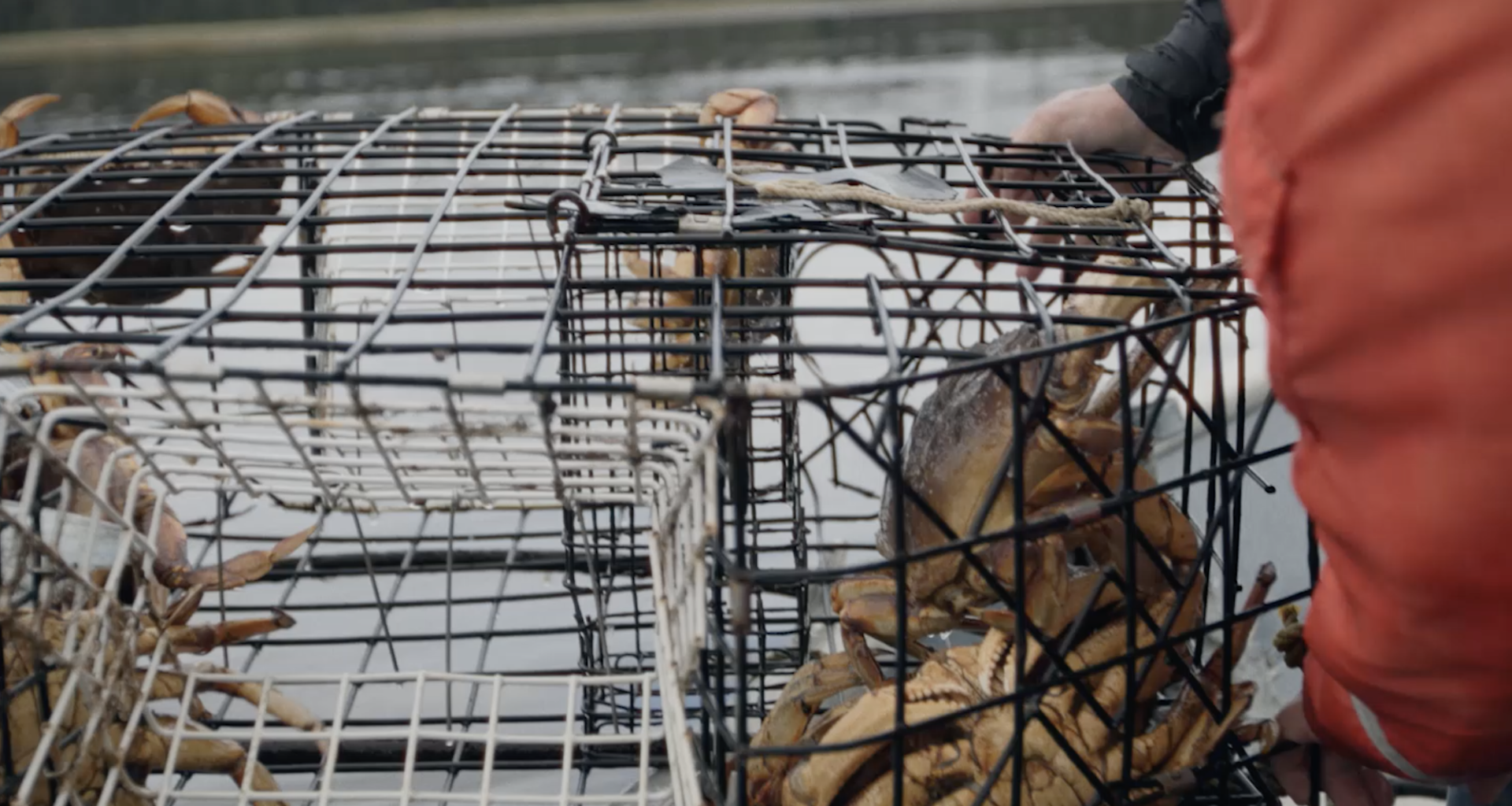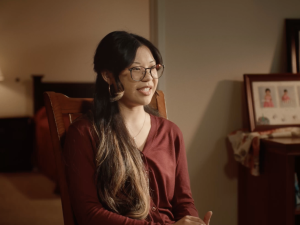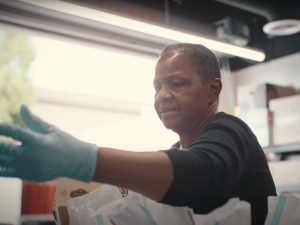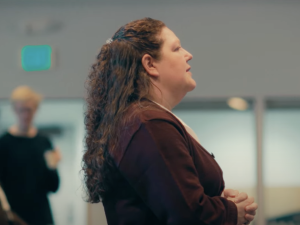The tiny community of Angoon, Alaska—population 349—struggles to maintain a vital and thriving traditional culture. Hemmed in by regulations limiting their ability to subsist off the land and sea, and a small, difficult-to-access island preventing investment and growth from reaching the community and providing jobs, the population has been declining for decades.
The Salvation Army has been working in Alaska since 1898, serving the Angoon community through its highs and lows, and forging lasting relationships along the way.
See the stunning scenery, learn about the subsistence lifestyle of the Tlingit people and witness the unique work of Salvation Army officers in Angoon in this short documentary.
Below is a transcript of the video, edited for readability.
Major Cathy Quinn (Ret.): Angoon is a dream that God put in my heart. You’re among the beauty of God’s creation, you see the animals all the time, you see the changing of the seasons. It’s my idea of almost heaven. The Tlingit people are welcoming.
Major John Quinn (Ret.): They are a First Nations people. Everybody knows everybody. It’s about relationship.
Major Cathy Quinn: They subsistence fish and hunt, and they love their culture. This culture’s survived for a long time.
Major John Quinn: Even among the Southeast Alaska people, Angoon is considered one of the last strongholds of culture.
The Salvation Army owns and operates Eagle’s Wing Inn, the only year-round lodging available on the island. The Corps Officers (pastors) run both the inn and the local church.
Major John Quinn: When the people come here, I get to know a little bit about them, and chat with them. You’re not doing pastoral care with them, but it’s hospitality.
Major Cathy Quinn: It is ministering by presence and hospitality to the folks. I think more than any place we’ve ever served, relationship matters in Angoon.
Major John Quinn: There were people in this community who were very standoffish. We’d been here about six months and we said, “We’ve got to get a boat.” As soon as we got that boat, one of the gentlemen came up to me in the trading post, and said, so you want to be one of us? He realized that we really wanted to be here, and we really wanted to be a part of it. We were accepted by them.
They were teaching me how to rig bait, they were teaching me what their setups were, they were telling me where they fished at, and how deep. I never came up into any of the bays the first time without having a local in the boat with me, so they could show me the route in and out, and where the rocks were.
There was a Salvation Army officer who bought a big boat—it’s still in the bottom of Mitchell Bay. Ripped the bottom out and it sunk. Don’t come in thinking you know it.
Peter Duncan: Rain will come down like this hard, and then it’ll stop. But sometimes it doesn’t. [laughs]
The longer you stay, the more you get to know people. If you’ve been here as long as John has, ten years, he’s seen a lot of hurt and a lot of happiness and, you know, and he understands what we go through. We have to fight a lot with the system, just to keep our livelihood going.
Major John Quinn: Just to keep their Native rights.
Peter Duncan: They’re putting regulations on us and telling us what we can and can’t fish. If we didn’t have subsistence, how would we make it? That’s our livelihood.
Major John Quinn: Population has cut in half. The people that have left have left for either better education opportunities for their children, or for work.
Major Cathy Quinn: I am concerned that the village, as the older folks pass on, that it will die because there isn’t any industry here to allow the younger families to be able to support themselves. And I would just hate to see this way of life die.
Major John Quinn: Peter was talking about that out on the boat today, and how it becomes harder and harder as time goes on, to continue to be who they are. But it’s important that they do.
The Salvation Army has been in Southeast Alaska since 1898. We have a deep heritage, and we are the only one who came in who did not try to take away their regalia, their culture, or their customs. It is not our purpose, it’s not our mission, to make people like us. Our mission is to make people like Christ. You try to do it within the context of their culture.
Major Cathy Quinn: Corps life is more about being out in the village with the folks. We try really hard to make a presence in the village whenever there’s something going on.
Major John Quinn: Between the adult Sunday School class, Kids’ Sunday School, the worship, Tuesday night Bible Study, and her Home League, we have 20% of the village, in one of our programs.
Major Cathy Quinn: I’ve got a weekly cookie delivery that I do to probably about 23 households. That helps me stay connected. In a bigger city, you know about your folks, but you don’t really have the opportunity to know your folks, where here you have that opportunity. You’re a part of their day-to-day lives.
When you become a part of the village, you are a part. Even growing up in a small town, I never felt 100% a part the same way I feel here in Angoon.
Major John Quinn: Learn from the people. They have as much to teach us as we have to teach them. They share their culture, their history, and who they are with us. We share Christ and the Scriptures, and who we are in Christ with them. And together we build relationships.
Major Cathy Quinn: It’s home!
*As of July 1, 2023, Majors John and Cathy Quinn are retired.
Do Good:
- See more videos like this in our video feed.
- Are you a Do Gooder, someone who cares about bringing goodness into the life of your family and community? Subscribe to The Do Gooders Podcast to be inspired by those doing good and find tangible tips for simple actions you can take today.
- Did you know The Salvation Army served more than 23 million Americans last year fighting hunger, homelessness, substance abuse and more—all in a fight for good? Where can you help? Take our quiz to find your cause and learn how you can join in today.











